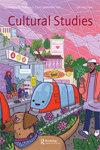文化循环中的生态与劳动
IF 1.2
3区 社会学
Q1 ANTHROPOLOGY
引用次数: 0
摘要
我们中的许多人都借鉴了现在经典的文化循环,将媒体技术从根本上情境化,作为更大的监管、生产、消费、代表和身份体系的一部分。尽管我觉得它具有生成性,但长期以来,生态和劳动最初并不是这个框架的一部分,这一直困扰着我。Discard Studies为我们如何重新思考文化循环提供了一个令人信服的干预:如果我们没有在媒体技术的研究认识论中集中一种理想的资本主义商品,而是通过不理想的材料进入种族化、性别化和有能力的资本主义的软肋,通常位于远离精英的隐蔽住所,例如有毒污染和商业内容管理?Discard Studies是纽芬兰纪念大学两位地理学家的合作项目。Max Liboiron的《殖民主义的污染》使他们成为塑料垃圾和非殖民化的主要批评者,Josh Lepawsky的《重新组装垃圾》使他成为全球电子垃圾贸易和贩运的主要批评者。他们共同撰写了《丢弃研究》,以确定研究当今被丢弃的东西和人的关键承诺,为“如何评估和贬低一些材料、实践、地区和人提供了一种广泛而系统的方法”(第3页)。引言以反思BPA(双酚A,一种有毒的合成化学物质)如何在收银机收据中流通为开场白。在传统的生产-消费-处置线性废物管理制度的基础上,作者绘制了一个由反馈回路和出口组成的更复杂的系统,其中涉及经济、政治和物质流、相互作用和结构。Liboiron和Lepawsky随后应用该框架进行考虑本文章由计算机程序翻译,如有差异,请以英文原文为准。
Ecology and labour in the circuit of culture
Many of us have drawn on the now classic circuit of culture to radically contextualize media technology as part of larger systems of regulation, production, consumption, representation, and identity. Although I find it generative, it long has bothered me that ecology and labour were not initially part of that framework. Discard Studies offers a compelling intervention for how we might rethink the circuit of culture by considering: what if – instead of centring a desirable capitalist commodity in our research epistemologies of media technologies – we entered through the underbelly of racialized, gendered, and ableist capitalism through undesirable materials, often located in the hidden abode away from elites, such as toxic pollution and commercial content management? Discard Studies is a collaboration between two geographers at Memorial University of Newfoundland. Max Liboiron’s Pollution as Colonialism established them as a leading critic of plastic waste and decoloniality, and Josh Lepawsky’s Reassembling Rubbish established him as a leading critic of the global trade and trafficking of e-waste. Together, they wrote Discard Studies to identify key commitments for studying what and who is discarded today, offering a ‘broad and systematic approach to how some materials, practices, regions and people are valued and devalued’ (p. 3). The Introduction opens by reflecting on how BPA (bisphenol A, a toxic synthetic chemical) circulates through cash register receipts. Troubling the traditional linear waste management regime of production-consumption-disposal, the authors map a more complex system consisting of feedback loops and exits, which involve economic, political, and material flows, interactions, and structures. Liboiron and Lepawsky then apply this framework to consider, for
求助全文
通过发布文献求助,成功后即可免费获取论文全文。
去求助
来源期刊

Cultural Studies
Multiple-
CiteScore
3.50
自引率
6.70%
发文量
0
期刊介绍:
Cultural Studies is an international journal which explores the relation between cultural practices, everyday life, material, economic, political, geographical and historical contexts. It fosters more open analytic, critical and political conversations by encouraging people to push the dialogue into fresh, uncharted territory. It also aims to intervene in the processes by which the existing techniques, institutions and structures of power are reproduced, resisted and transformed. Cultural Studies understands the term "culture" inclusively rather than exclusively, and publishes essays which encourage significant intellectual and political experimentation, intervention and dialogue.
 求助内容:
求助内容: 应助结果提醒方式:
应助结果提醒方式:


